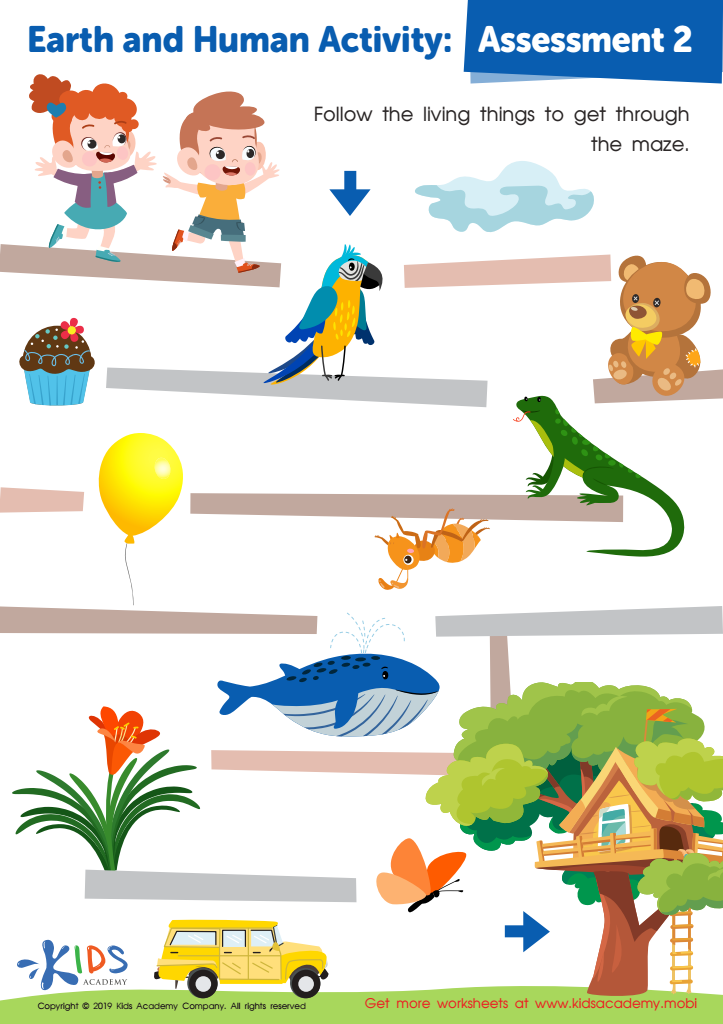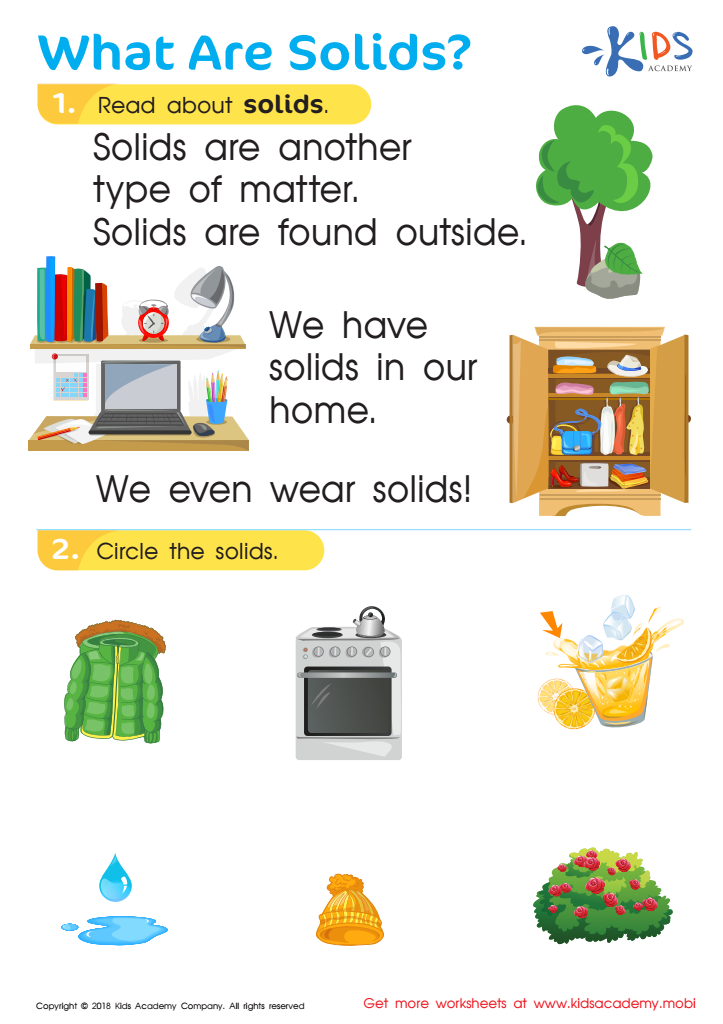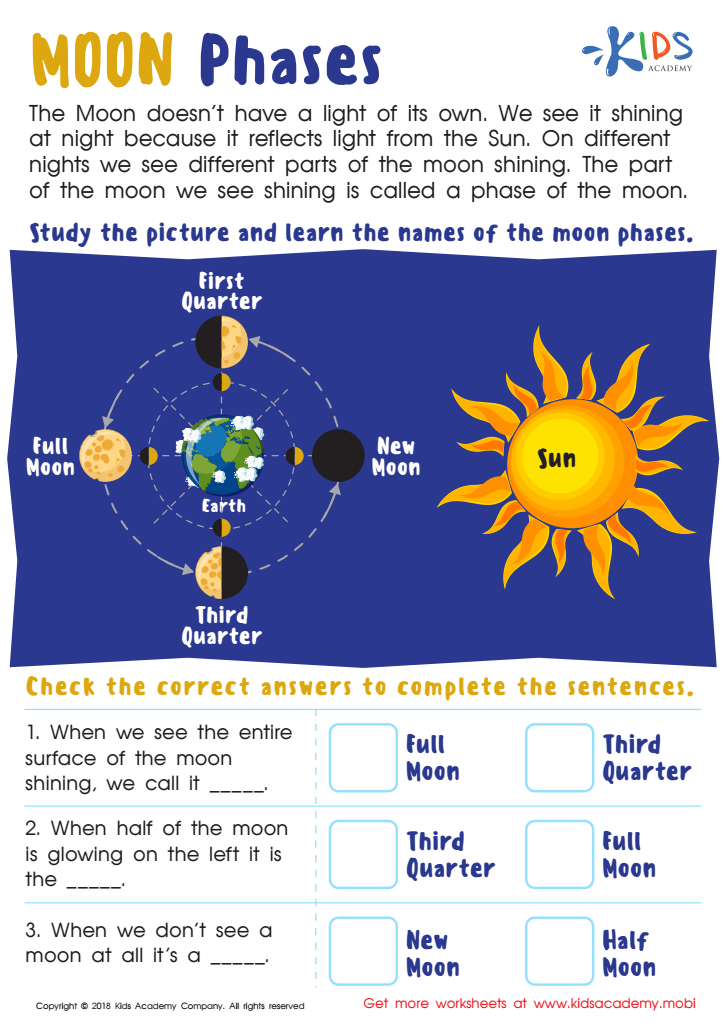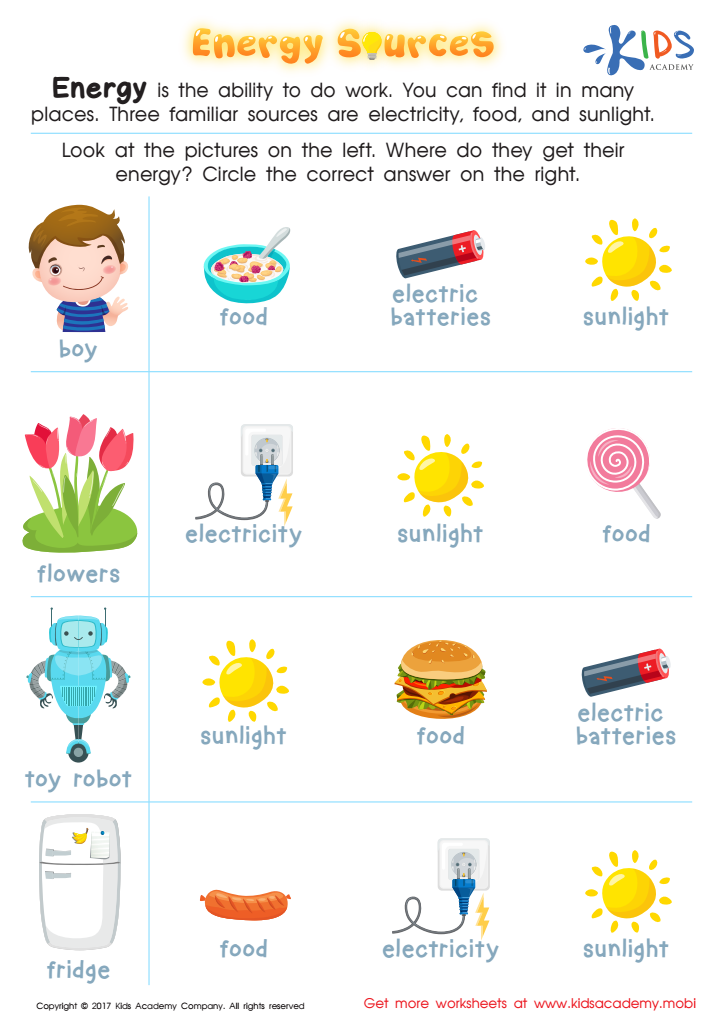Knowledge application Science Worksheets for Ages 5-6
4 filtered results
-
From - To
Explore a world of fun and learning with our Knowledge Application Science Worksheets designed for ages 5-6! These engaging worksheets from Kids Academy combine curiosity-driven exercises with illustrated activities to reinforce essential science concepts. With a focus on developing observation, comparison, and analytical skills, kids get hands-on experience applying what they’ve learned in real-world contexts. Each worksheet challenges young minds through age-appropriate tasks that stimulate critical thinking and instill a love for science from an early age. Perfect for classroom use or at-home practice, these worksheets are a great resource for fostering a lifelong passion for exploration and discovery.


Earth and Human Activity: Assessment 2 Worksheet


What Are Solids? Worksheet


Moon Phases Worksheet


Energy Sources Printable
Parents and teachers should care about the application of science knowledge in ages 5-6 as it lays the groundwork for critical thinking, problem-solving, and a curiosity-driven learning mindset. Science at this stage isn't about learning complex theories but about understanding basic concepts through everyday experiences. Engaging with science helps in broadening a child’s understanding of the world around them. Through simple experiments and observations, children can begin to grasp the why and how of natural phenomena, fostering an early appreciation and enthusiasm for learning.
Introducing science at an early age also enhances cognitive development and encourages inquisitiveness. Children in this age bracket are naturally curious and constantly asking "why." Guided exploration allows them to investigate these questions experimentally, instilling a sense of scientific inquiry. Activities like observing plant growth, mixing colors, or understanding weather changes can turn abstract concepts into relatable and tangible experiences.
Moreover, early science exposure supports language development and literacy, as children learn new vocabulary and ways to articulate their ideas. It also makes them agile learners, better equipped to tackle challenges not just in science, but across all subject areas. Importantly, fostering a comfort with science early opens a pathway to long-term academic and personal growth, preparing them for a future where scientific literacy is increasingly crucial.
 Assign to My Students
Assign to My Students



















